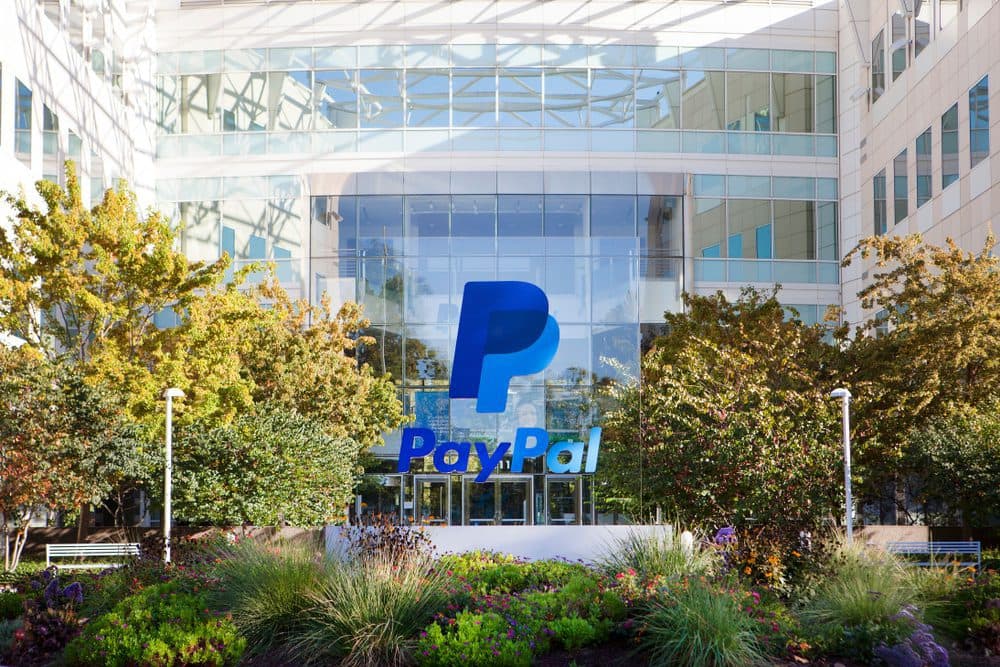PayPal Enables Crypto Transfers to External Wallets, Exchanges
The fintech giant first enabled crypto buying and selling in late 2020, but users couldn’t transfer their assets to third-party wallets

SOURCE: SHUTTERSTOCK
key takeaways
- Select US users can transfer bitcoin, ethereum, bitcoin cash and litecoin to other wallets and exchanges
- Sending crypto outside of PayPal carries a fee determined by network congestion
PayPal users can now transfer cryptocurrencies including bitcoin and ether to third-party wallets and exchanges, nearly two years after the payments giant opened up its platform to digital assets, the company announced on Tuesday.
Currently available to select US users, the feature will be extended to eligible US customers in the coming weeks, according to the announcement.
The San Jose, California-based company first began allowing customers to buy, hold and sell bitcoin, ether, bitcoin cash and litecoin in October 2020. But they had no option to move out their holdings from the platform to crypto wallets such as MetaMask and Electrum, or exchanges such as Coinbase.
This feature was one of the most requested updates since the purchase of cryptocurrencies were allowed, PayPal said, and executives had been discussing its implementation for a year.
Now users will be able to move their cryptocurrency from PayPal to other crypto addresses, including hardware wallets — and send crypto to family and friends for free within the same payments network. Sending cryptocurrency outside of PayPal carries a fee, which may fluctuate depending on network congestion.
The capability still applies only to bitcoin, ethereum, bitcoin cash and litecoin.
PayPal’s announcement carries weight, as the fintech giant has more than 426 million active users who use the network to transfer money around the world and to make payments to merchants.
In March last year, PayPal rolled out the ability for US customers to use crypto as a form of payment to merchants using its “Checkout with Crypto” service.
“We will continue to roll out additional crypto features, products, and services in the months ahead,” Jose Fernandez da Ponte, general manager of blockchain, crypto and digital currencies at PayPal, said in a statement.
Dan Schulman, PayPal’s president and CEO, revealed last year the firm’s crypto capabilities will expand into the use of central bank digital currencies and smart contracts.
Some of PayPal’s revenue stems from crypto purchases made on its platform, but the exact amount isn’t clear because the company excludes this figure from its total payment volume.
Venmo, a popular payments app owned by PayPal, supports the buying and selling of cryptocurrencies but doesn’t yet have the ability to transfer them externally.
As for Robinhood, the trading app rolled out a beta version of its crypto wallet to 1,000 customers that allowed them to transfer digital assets to other crypto wallets for the first time in January. It later opened the feature to 2 million more “eligible” users — excluding those in New York, Hawaii and Nevada, due to regulatory hurdles.
Get the news in your inbox. Explore Blockworks newsletters:
- The Breakdown: Decoding crypto and the markets. Daily.
- Empire: Crypto news and analysis to start your day.
- Forward Guidance: The intersection of crypto, macro and policy.
- 0xResearch: Alpha directly in your inbox.
- Lightspeed: All things Solana.
- The Drop: Apps, games, memes and more.
- Supply Shock: Bitcoin, bitcoin, bitcoin.





